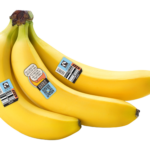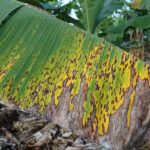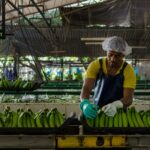Chile: banana flour creates potential for fruit waste

A group of Chilean researchers has developed flour made from ripe bananas. By processing the fruit's pulp and peel, the process could create 30,000 tons (MT) of the product a year in Chile.
The flour will have similar nutritional characteristics to the fruit, including high levels of vitamins, minerals and dietary fiber, according to Carmen Soto, Ph.D. from the Regional Center for Food and Health Research (CREAS).
"We have worked for years on the revaluation of various agricultural residues like berries, pears and tomatoes. In this case, originally we had considered working with the banana peels by evaluating if they had some special characteristic that would allow us to generate a functional flour," Soto told www.freshfruitportal.com.
"We realized, however, that on a national level there is a lot of discarded banana waste as a result of more advance fruit maturity. Due to this and the good properties of bananas, we thought of developing a nutritional ingredient using waste from ripe bananas."
The product would be new to the market since currently marketed flour options in Chile are limited to wheat, rice, tapioca and quinoa. In countries like Colombia and Ecuador, available banana flours come from green bananas rather than the ripe fruit used for the Chilean project funded by the Chilean Economic Development Agency (Corfo).
"In contrast to other flours, we use the fruit's peel to produce this product, which, according to our evaluation, is a significant source of dietary fiber and a contribution to better health," Soto explained.
Up to 20% of bananas in Chile go to waste a year, Soto added, demonstrating the importance of utilizing the fruit's waste. Losses due to over ripening equate to around 30,000MT a year.
"For the import sector, this is a big loss because not only do they not sell the fruit but it also must be disposed of, which creates a cost for the industry. What we are doing, however, is considering this waste as raw material to develop a flour that can be improved and whose nutritional and functional characteristics are significant," Soto said.
The nutritional value, according to Soto, provides a social advantage, given the product's potential to be used for mass production for the general population.
Bananas are one of the most consumed fruits in Chile. An estimated 150,000MT are imported to the country a year.













































